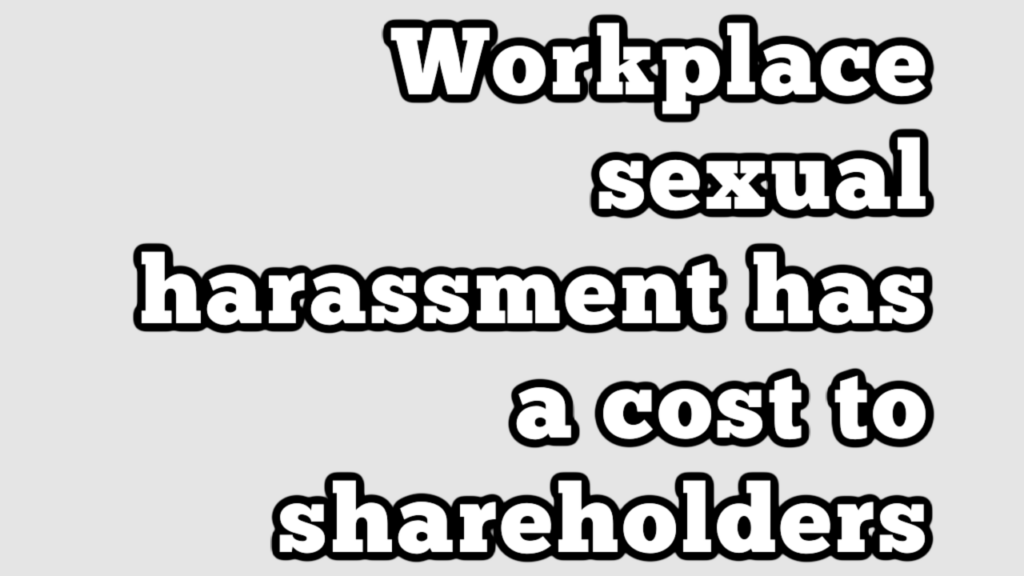Workplace sexual harassment has a cost to shareholders

Here’s the intro from this blog by Cooley’s Cydney Posner:
Workplace sexual harassment and related misconduct—a toxic boys’-club atmosphere—led to three recent cases against McDonald’s, its management and board. And studies have shown that workplace sexual harassment can have substantial adverse “psychological, health, and job-related consequences” for employees, often resulting in “higher employee turnover, lower employee productivity, increased absenteeism, and increased sick leave costs.” But what is the impact for shareholders?
A study in the Journal of Business Ethics, “How Much Does Workplace Sexual Harassment Hurt Firm Value?”, looked at just this question. Earlier studies of the impact of workplace sexual harassment looked at the short-term impact on the market, but this study analyzed the “longer-term effect on firm value starting from the date when harassment risk affects employee morale.” The study found that sexual harassment led to much greater damage—manifested in significant reductions in stock performance and profitability—than previously realized: the stock prices of the group of companies with the highest levels of pervasive harassment underperformed those of an equivalent group with low levels of harassment by about 17%.
The study also showed that these “high-SH” companies experienced a decline in operating profitability and an increase in labor costs. One of the paper’s co-authors told Corporate Secretary, “[f]inancial analysts and investors often undervalue intangibles such as the effect of a toxic work environment…But [workplace safety] is indicative of all sorts of other underlying issues, including poor control systems and overall bad governance, which can directly impact employee performance, company performance and stock market value.”
